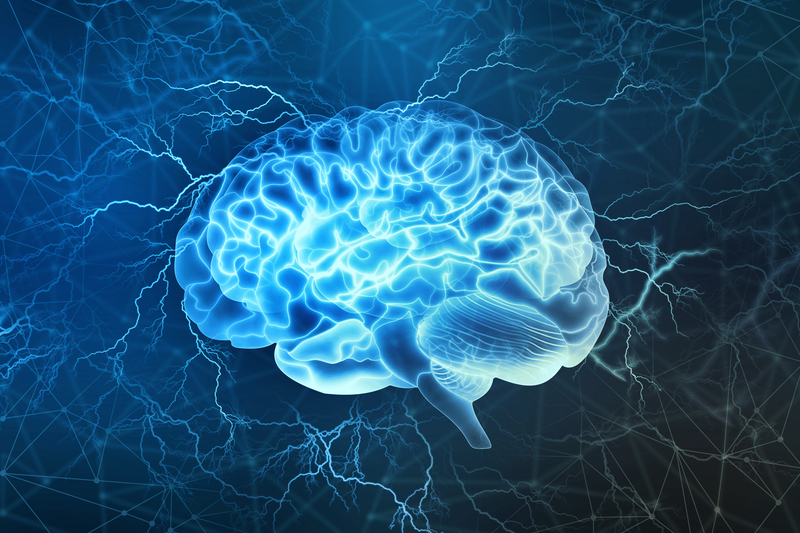7 Effective Mental Exercises for Enhancing Brain Power

Open up the app store, and you’ll likely find an endless list of games claiming that just playing them can enhance brain power—from word games to math games to memory games and combinations of all the above. There are also traditional brain exercises like sudoku and crossword puzzles, both on- and offline. And there is evidence that these games can engage the brain in new ways to help boost connections and brain function.
The Brain Is Always Learning
Why exercise the brain? Doesn’t it get enough exercise every day? After all, normal activities engage the brain in multiple ways. The brain stays active day and night, even as we sleep. Yet certain activities can engage the brain in new ways, which could improve memory, creativity, and cognitive function and possibly help slow or prevent the decline of brain function as we age.
For example, activities that allow us to problem-solve in real life, such as planning a trip, working through a complex issue, or even just navigating the healthiest way through the grocery store. Even mundane tasks can challenge us to think critically and creatively. And new tasks encourage new neural pathways as well as strengthen existing ones.
Social activities, such as spending time with friends or conversing with neighbors, stimulate areas in the brain that involve language, emotional regulation, and compassion. In addition, even brief social interactions can decrease loneliness and depression.
Discover How You Can Sharpen Your Focus, Improve Your Active Memory, & Light Up Your Drained Brain With BioTrust Brain Bright®
PLUS you can take 15% off your Brain Bright order today when you use the discount code BLOG15 at checkout!
==> Get an Extra 15% Off Brain Bright Now (Use Code: BLOG15 at Checkout)
Learning new skills, such as a new program at work, a new language, an instrument, a hobby, or exercise challenges the brain in unique ways. It promotes neuroplasticity and the growth of new neural connections, which keep the brain sharp.
We’re also tasked with daily activities involving memory, such as remembering what you need to pick up at the store, what time your next appointment is, and sharing stories from the recent or distant past. Exercising memory functions in the brain can help you maintain and even improve memory over time.
New sights, smells, and tastes also stimulate different areas of the brain to support cognitive flexibility. Traveling, trying new foods, or exploring new environments can stimulate these areas.
Reading and writing, whether for work, learning, or pleasure, exercise your mind’s language, comprehension, and imagination centers. Writing, including journaling or writing letters, also supports cognitive health by encouraging communication skills and learning how to better express yourself.
Physical activities—even those that are part of daily life, such as walking or keeping the house tidy—as well as more strenuous exercise sessions, are vital for not only physical health but also have powerful positive effects on the brain. Regular exercise increases blood flow to the brain, which can improve cognitive functioning and reduce cognitive decline.
Practicing mindfulness or meditation can help enhance focus and attention and reduce stress levels. Even taking a moment to be present and mindful can enhance brain power. Research suggests meditation may even slow aging of the brain and promote our ability to process information.
With all of those “brain exercises” that are just part of life, why bother with extra brain training?

Why Exercise the Brain?
Everyday activities are a natural form of brain exercise, but actively engaging in specific brain training may offer additional benefits. This is especially true in modern society, where lifestyles have become increasingly sedentary and cognitively less challenging. After all, we now can depend on automation, AI (including Google and spell checks), or contact lists, so we rarely have to remember phone numbers.
Targeted brain training offers several benefits, such as focusing on specific areas of improvement like memory, attention, processing speed, or problem-solving. Especially if you have aspects you know you want to improve, specific brain exercises can stimulate those areas more than everyday activities alone do.
Engaging in activities that challenge the brain can help build cognitive reserve. This is the brain’s ability to improvise and find alternative ways of accomplishing a task or solving a problem. In addition, greater cognitive reserve may help delay the onset of cognitive decline and may help slow or prevent the delay of neurodegenerative diseases (e.g., Alzheimer’s).
Proactively engaging in exercises to train the brain can help maintain or improve cognitive health before decline. It’s a preventative healthcare practice that’s vital for our aging population.
Because our lives have become so reliant on technological advances, we’ve naturally lost some of the cognitive stimulation that occurs in the natural environment. Brain training can be used to help counteract these effects. Challenging and engaging in new learning experiences regularly can help the brain stay sharp and improve your ability to learn.
It’s also fun to see progress. Just as increasing the weight you can lift provides a boost of motivation, seeing improvement in your learning or memory can motivate you to learn more. Unlike incidental learning, structured brain training can provide clear objectives and measurable outcomes. As you track your progress over time, you can use that information to adjust your training to overcome areas of cognitive weakness. You can also use these programs to personalize your training, so it’s challenging enough to promote growth without leading to frustration or burnout.
You can also train your brain with others in group activities or online. These activities offer greater social engagement and foster motivation and accountability. Plus, the social aspects can make the process more enjoyable.

7 Effective Mental Exercises to Enhance Brain Power
Just as different types of exercises work different parts of the body, different brain exercises stimulate different areas of the brain. Creating a routine with targeted activities can help promote various aspects of cognitive function.
- Memory Training: Using memory aids like acronyms, visual imagery, or rhymes can help you remember information. For instance, to remember the names of the Great Lakes, you could use the acronym HOMES (for Huron, Ontario, Michigan, Erie, Superior). When running to the grocery store to pick up five food items, you could link the food to different body parts (e.g., walnuts – head; asparagus – throat; avocado – heart/chest; broccoli – belly; chicken – thighs). No list needed.
- Attention and Concentration: Practicing mindfulness exercises improves your ability to focus and maintain attention. You could learn this practice with a guided meditation app. You could also simply focus on your breathing for five to ten deep breaths. Or spend 10 minutes feeling the rise and fall of your chest with each breath, allowing and observing thoughts and then returning your focus to your breath.
- Problem-Solving or Critical Thinking: Have fun with puzzles and brain teasers like crossword puzzles or sudoku. Or play chess or other strategy games or even video games. Consider setting a limit (and maybe even a timer) for how long you want to play before getting back to your day, as many games can be rewarding enough that you don’t want to stop.
- Language and Learning: Pick up a novel or non-fiction book, short story, or article on a subject you find intriguing. Then, write a summary of what you learned and what you thought about as you read it. This can help improve your comprehension and critical thinking skills. You can also enhance brain power by learning a new language. Visiting a country and really immersing yourself in the language and culture may be the fastest way, but you can also use an app to practice new words and phrases each day.
- Creativity and Flexibility: Taking up a new hobby is a great way to learn how to enjoy the process of creating. Try painting, drawing, digital art, sculpture, or crafting. Or you can learn how to play an instrument. Tell your inner critic to take a hike and just have fun creating for the joy of it. To get more creative at problem-solving, consider as many ways as possible to use a common household item like a pen or paperclip. This type of exercise (known as lateral thinking) can help you get better at thinking outside the box. As a bonus, it may help you find ways to reuse or reimagine what you already have to buy less.
- Social Interaction: Playing board games with friends or family is a fun way to spend the evening. Especially if you choose discussion games and teamwork, you can enhance your interactions and build closer connections. You can also participate in book clubs and hiking groups, or join the BioTRUST VIP Facebook group to enjoy stimulating conversations and develop new connections with people interested in healthier lifestyles.
- Physical Exercise: Yes, physical exercise is vital for a healthy body, but it’s also important for a healthy mind. As John F. Kenney said, “Physical fitness is not only one of the most important keys to a healthy body, it is the basis of dynamic and creative intellectual activity.” Incorporate walking, jogging, cycling, dancing, and other activities that elevate your heart rate into your routine (the recommended amount is at least 150 minutes per week). In addition, activities like weight training, yoga, and tai chi can enhance strength, coordination, balance, and focus.
Adding these types of activities into your daily life can not only make it more interesting, but it could also improve your overall brain health and cognitive functioning.

Enhance Brain Power: A Wrap-up
Enhancing brain power isn’t just about engaging in one type of activity. It takes a diverse yet targeted approach. Yes, everyday activities do provide a natural and essential form of mental exercise. Yet, intentionally adding specific brain training exercises into your routine can offer profound benefits.
From memory aids that make a quick shop more fruitful to mindfulness exercises that diminish stress levels to problem-solving games that make your brain more resilient to physical exercises that strengthen the body and mind—each activity has a unique role that stimulates and challenges the brain in new ways to enhance brain power. Not only can this improve your current cognitive abilities, it can set a strong foundation for long-term brain health.




